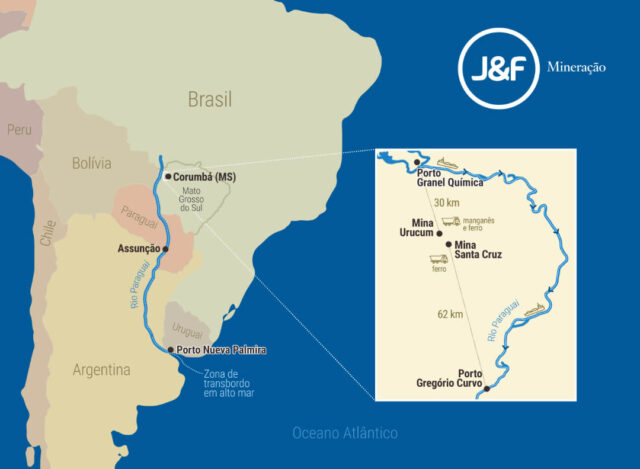Hello, everyone! This is my first time posting practically anything in this site, so I hope I'm not breaking any rule. I think it's important to warn that english isnt my first language, so expect some misspellings and grammatical mistakes, but I'll try to avoid these as much as possible.
The title says it all, but, for some context: in 1555, Villeigaignon, a French naval officer, took a island in the Guanabara Bay, in front of present day Rio-de-Janeiro, and later built a fort named Coligny and a settlement in the mainland named Henriville. Unchallenged by the Portuguese, Villegaignon endeavoured to expand the colony by calling for more colonists in 1556, bringing Huguenots/Calvinists in 1557, but, due to religious conflicts, the Calvinists were banished from the Coligny island still in 1557 (event that, in IMO, condemned the entire colonial effort). After that, in 1560, the Portuguese sent Mem de Sá to expel the French, imposing a final defeat on the French forces in January 1567.
Now, there is some interesting parts of the wikipedia's article of France Antarctique, such as 'He [Villegaignon] sent one of his ships, the Grande Roberge, to Honfleur, entrusted with letters to King Henry II, Gaspard de Coligny, and according to some accounts, the Protestant leader John Calvin'. 300 colonists more or less, including 5 young women to be wed, 10 boys to be trained as translators, as well as 14 Calvinists were sent by Calvin himself.
With all of this, could Antarctique survive and become, let's say, a regional power in South America? Maybe rivalizing with Argentina, a Dutch colony in the Northeast and other luso-brazilian rump states (once these colonies achieve independence)? Taking the rivers into account, the country would probably be composed by the brazilian states in the Center-South (Centro-Sul) region, or everything down of Mato Grosso do Sul, Goiás, Minas Gerais and Espírito Santo.

Its also good to remember that there were around 2,000,000 Huguenots in France around 1572, their diaspora being famous for their skilled craftsmanship and innovation. Maybe something like the US, at least socially, could be born from this? Slavery is almost guaranteed to happen, but I dont think a multiracial society would be born from this, so in the end we could simply get a south american southern US. The population is whats make me interested in this: 2 million potential settlers. Now, I know that its not like every single French huguenot will migrate to Antarctique, but the potential is there: the Thirteen Colonies and Australia were penal colonies (not sure on the first one) and there were some efforts from France to settle the lands of New France, though they were in vain. Here, however, the Huguenots could create a society from the other side of the Atlantic the way they intended (despite having to obey the Catholic French depending of the situation), the Puritans being the best analogy I can think of.
Anyway, that's all. What do you guys think?
The title says it all, but, for some context: in 1555, Villeigaignon, a French naval officer, took a island in the Guanabara Bay, in front of present day Rio-de-Janeiro, and later built a fort named Coligny and a settlement in the mainland named Henriville. Unchallenged by the Portuguese, Villegaignon endeavoured to expand the colony by calling for more colonists in 1556, bringing Huguenots/Calvinists in 1557, but, due to religious conflicts, the Calvinists were banished from the Coligny island still in 1557 (event that, in IMO, condemned the entire colonial effort). After that, in 1560, the Portuguese sent Mem de Sá to expel the French, imposing a final defeat on the French forces in January 1567.
Now, there is some interesting parts of the wikipedia's article of France Antarctique, such as 'He [Villegaignon] sent one of his ships, the Grande Roberge, to Honfleur, entrusted with letters to King Henry II, Gaspard de Coligny, and according to some accounts, the Protestant leader John Calvin'. 300 colonists more or less, including 5 young women to be wed, 10 boys to be trained as translators, as well as 14 Calvinists were sent by Calvin himself.
With all of this, could Antarctique survive and become, let's say, a regional power in South America? Maybe rivalizing with Argentina, a Dutch colony in the Northeast and other luso-brazilian rump states (once these colonies achieve independence)? Taking the rivers into account, the country would probably be composed by the brazilian states in the Center-South (Centro-Sul) region, or everything down of Mato Grosso do Sul, Goiás, Minas Gerais and Espírito Santo.

Its also good to remember that there were around 2,000,000 Huguenots in France around 1572, their diaspora being famous for their skilled craftsmanship and innovation. Maybe something like the US, at least socially, could be born from this? Slavery is almost guaranteed to happen, but I dont think a multiracial society would be born from this, so in the end we could simply get a south american southern US. The population is whats make me interested in this: 2 million potential settlers. Now, I know that its not like every single French huguenot will migrate to Antarctique, but the potential is there: the Thirteen Colonies and Australia were penal colonies (not sure on the first one) and there were some efforts from France to settle the lands of New France, though they were in vain. Here, however, the Huguenots could create a society from the other side of the Atlantic the way they intended (despite having to obey the Catholic French depending of the situation), the Puritans being the best analogy I can think of.
Anyway, that's all. What do you guys think?
Last edited:

